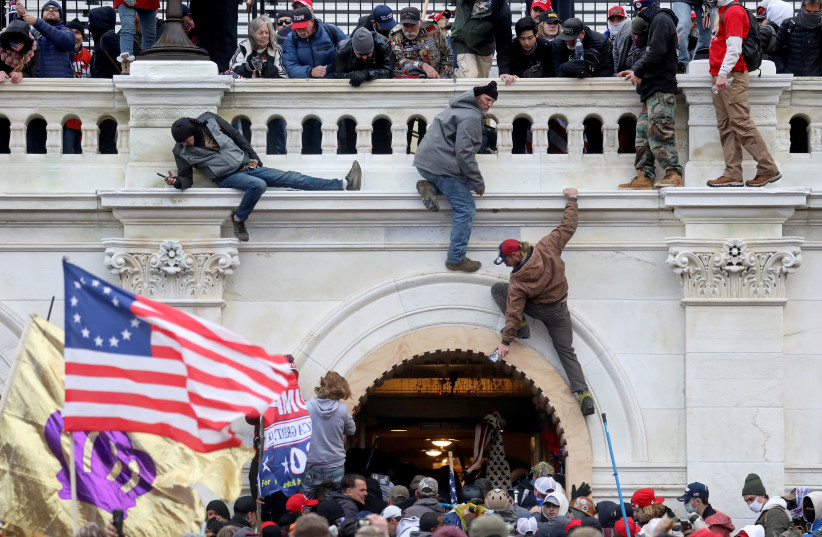February 13, 2022 marks one year since former US president Donald Trump was acquitted in his second-ever impeachment trial, making the 45th president the first to ever have been impeached two times.
The background to this particular impeachment lay rooted in the events of January 6, 2021, when supporters of the Republican president stormed the US Capitol as it was certifying the 2020 election that saw Joe Biden win and unseat Trump from the White House.
Trump had long refused to concede the race and accused it of being rigged with widespread election fraud, though not a single claim has been supported by any evidence and it is widely thought debunked.
On the day Congress began certifying the election, Trump gave what has been described as an incendiary speech, following which they marched on the Capitol and stormed the building in what has been dubbed by many as an insurrection, with some even calling it an attempted coup. The rioters clashed with law enforcement, stormed offices and loudly chanted for harm to come for many lawmakers, including Trump's vice president Mike Pence. Ultimately, five people including one police officer died in the violent riot.
Trump was widely condemned for the incident and eventually left office on January 20, meaning he could not be removed from office via impeachment. However, Democrats had hoped to secure a conviction to hold him responsible and set the stage for a vote to bar him from ever serving in public office again, something many believe he wants to do in 2024.

At the trial, Trump's attorneys argued that his words at the rally were protected by his constitutional right to free speech and said he was not given due process in the proceedings.
Ultimately, Trump was acquitted when 57 senators voted guilty and 43 voted not guilty, a majority but not the two-thirds majority needed to convict.
However, seven of the 50 Republican senators had voted to convict, a stark contrast from Trump's previous impeachment when only one Republican senator, Mitt Romney, voted to convict.
Seventy-one percent of American adults, including nearly half of all Republicans, believe Trump was at least partially responsible for starting the Capitol assault, but only about half of the country thought Trump should be convicted of inciting insurrection, according to an Ipsos poll conducted for Reuters ahead of the trial outcome in 2021.
Other Republicans in the aftermath have come out against Trump as well, including Senate Minority Leader Mitch McConnell, who began criticizing Trump immediately after the verdict was given. This has reflected a growing divide in the Republican Party, where Trump continues to hold significant sway even out of office.
Reuters contributed to this report.
